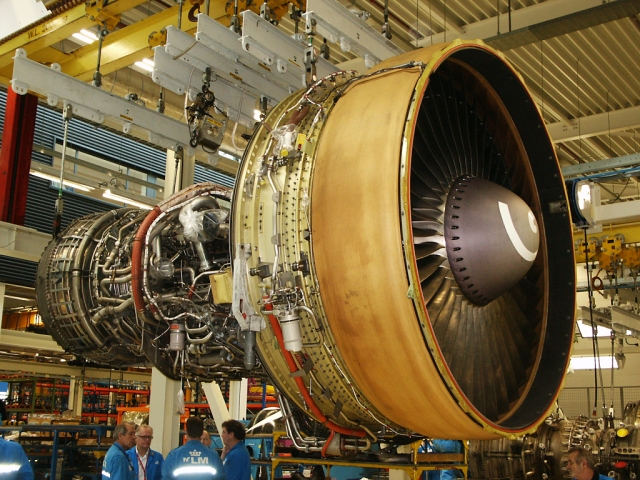
You may not know it, but if you’ve traveled on an aircraft there’s a good chance that you were propelled, safely and competently, by a General Electric CF-6 turbofan engine. It first flew in 1970 and is still going strong today.
Originally built for the US military’s collosal Lockheed C5 Galaxy cargo aircraft (which used four), and known as the T39, General Electric built the CF-6-6 to power the Lockheed L-1011 “Tristar” and McDonnell Douglas DC-10 widebody commercial airliners. The CF-6-6 was a more efficient and more powerful version than the T39 was; the military usually doesn’t care quite so much about their fuel bills as the airlines do. The Tristar then opted for the Rolls-Royce RB211 turbofan instead (an incredible engine seen most often pushing Boeing 757s into the skies and delivering a unique, orchestral, buzzsaw sound when at high power) so the DC-10 became the original customer, entering service in 1971.
In 1974, the then-new Airbus A300B2-1A was powered by a new variant of the CF-6 known as the CF-6-50. In 1975, KLM ordered Boeing 747s with CF-6-50 powerplants.
In 1982, the Boeing 767 entered service with the next iteration of the engine, the CF-6-80A. This engine was ETOPS certified, allowing for extended-range journeys away from suitable airports when the aircraft was fitted with only two engines. In 1983, the similarly-sized Airbus A310 entered service with the same CF-6-80A engine.
The CF6-80-C2 first flew in commercial service in October 1985 after some scary failures of the -80A engine, which had left some Boeing 767s in the scrapyard. The -80-C2 is currently flying on 747s, MD-11s, A300s, A310s, Boeing 767s and the C-5M Super Galaxy military cargo aircraft.

In 1987, Airbus launched the Airbus A330 project. This aircraft was offered with three different types of engine, one from each of GE, Rolls Royce and Pratt & Whitney. The GE engine offered was an evolution of the CF-6-80 called the CF-6-80C2.
Perhaps the most impressive statistic of the CF-6-80C2 is that it powers the most famous aircraft* in the world, Air Force One:

General Electric’s new powerplant is called the GEnx and is a revolution compared to the CF-6. GEnx uses gears to allow different parts of the engine to spin at their optimum speed for the flight regime the aircraft is in (take off, cruise, landing, etc). Who know what the next 40 years of General Electric research and development will bring…
* Yes, I know Air Force One is only a callsign and there are actually two VC-25s (28000, and 29000), stop being so pedantic.
